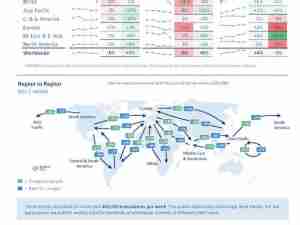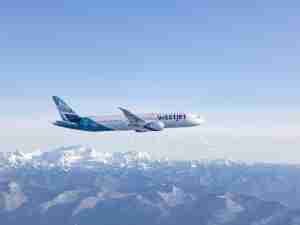Emirates, Etihad Banking on New U.S. Curbs to End Laptops Ban
By: | Jun 29 2017 at 11:14 AM | Air Cargo
Persian Gulf carriers Emirates and Etihad Airways PJSC said they’re hopeful that tighter airport security requirements announced by the Trump administration will pave the way for the lifting of a ban on the use of laptops on flights from Mideast hubs to the U.S.
Dubai-based Emirates, the world’s biggest long-haul airline, will work with authorities to implement the measures “as soon as possible,” according to a statement. “Lifting the ban on bringing laptops and other personal electronic devices on board will be good news for travelers flying into the U.S.,” it said.
Etihad plans to consult with the U.S. Transportation Security Administration to verify that the new steps will permit the termination of the moratorium, which also includes games consoles and tablets. All of the carrier’s American flights are processed through a U.S. Customs and Border Protection pre-clearance facility which it says adheres to the required measures.
“We will advise passengers once the new rules on personal electronic devices come into effect,” the Abu Dhabi-based airline said.
U.S. authorities want airports worldwide to implement increased screening, more thorough vetting of passengers and the wider use of bomb-sniffing dogs to mitigate potential terrorist threats. The measures emerged as an alternative to extending the laptops ban imposed in March for flights to the U.S. from 10 Middle Eastern and African hubs, including Dubai and Abu Dhabi.
Emirates suffered a drop in bookings and grounded 13 aircraft after the U.S. imposed the electronics embargo and sought to restrict travel for citizens of six predominantly Muslim countries. Tim Clark, the carrier’s president, said last week that he had visited Washington and lobbied for improved security checks as an alternative to the ban.
If global hubs like Dubai adhere to the new security regime, passengers flying to the U.S. can once again bring their devices aboard planes, according to a Homeland Security official who asked not to be named as discussing details.
A Dubai Airports spokesman directed questions about the implementation of the new measures to the United Arab Emirates civil aviation regulator, which was not immediately available for comment.






